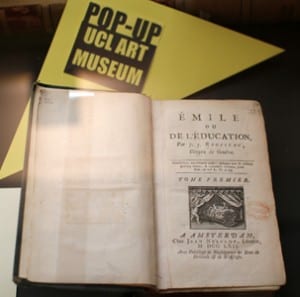Wellcome Image Awards 2012
By Clare S Ryan, on 21 June 2012
 Visual imagery is a particularly powerful way of getting people to see science in a different way – as a source of beauty – as well as providing important information about the world around us.
Visual imagery is a particularly powerful way of getting people to see science in a different way – as a source of beauty – as well as providing important information about the world around us.
The Wellcome Trust knows this perhaps better than anyone. Their annual Wellcome Image Awards celebrate the best images submitted to their archive in the previous year, and, as usual, UCL scientists get a particularly good showing.
Out of a total of 16 winners, four UCL images were presented with awards by the host Fergus Walsh, the BBC’s medical correspondent.
Three of UCL’s winning images were taken by the same team- Annie Cavanagh and David McCarthy from the UCL School of Pharmacy. Two images were of crystals; the first, a false-colour magnification of caffeine crystal, reminiscent of particularly beautiful sticks of rhubarb. (more…)
 Close
Close




